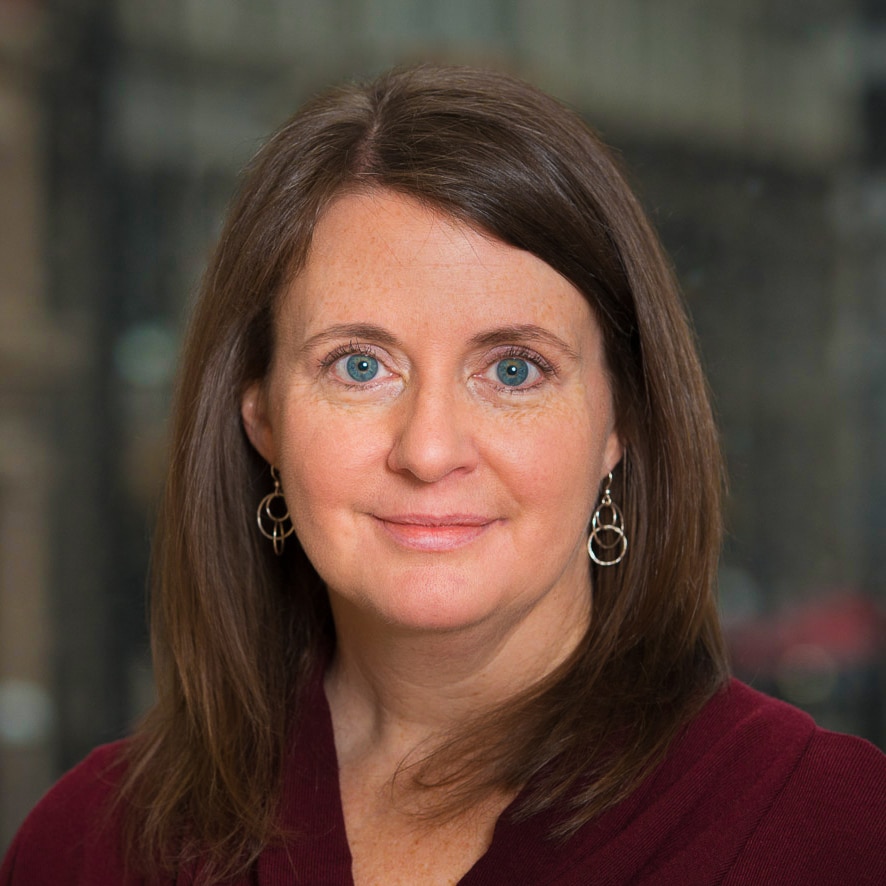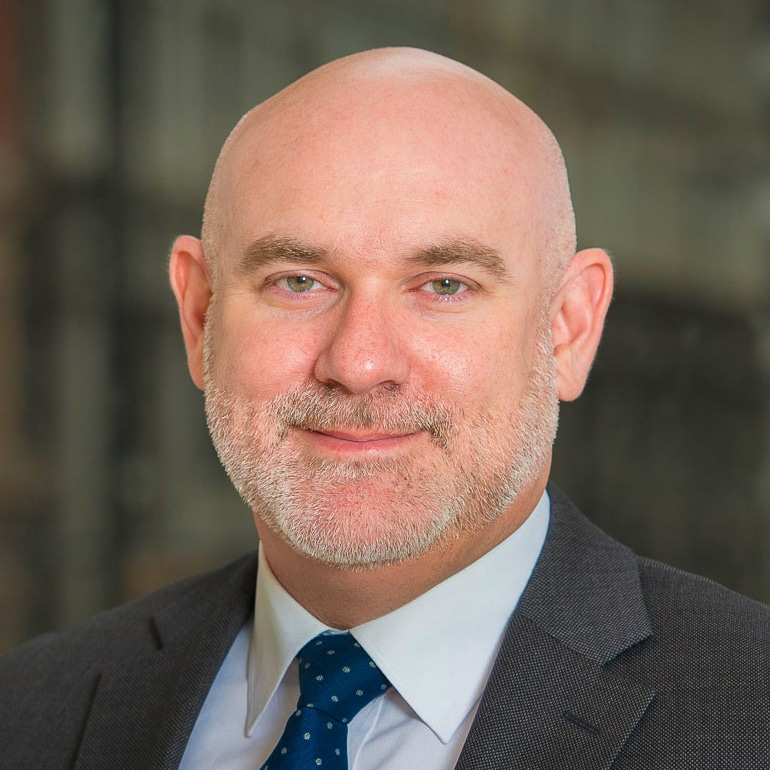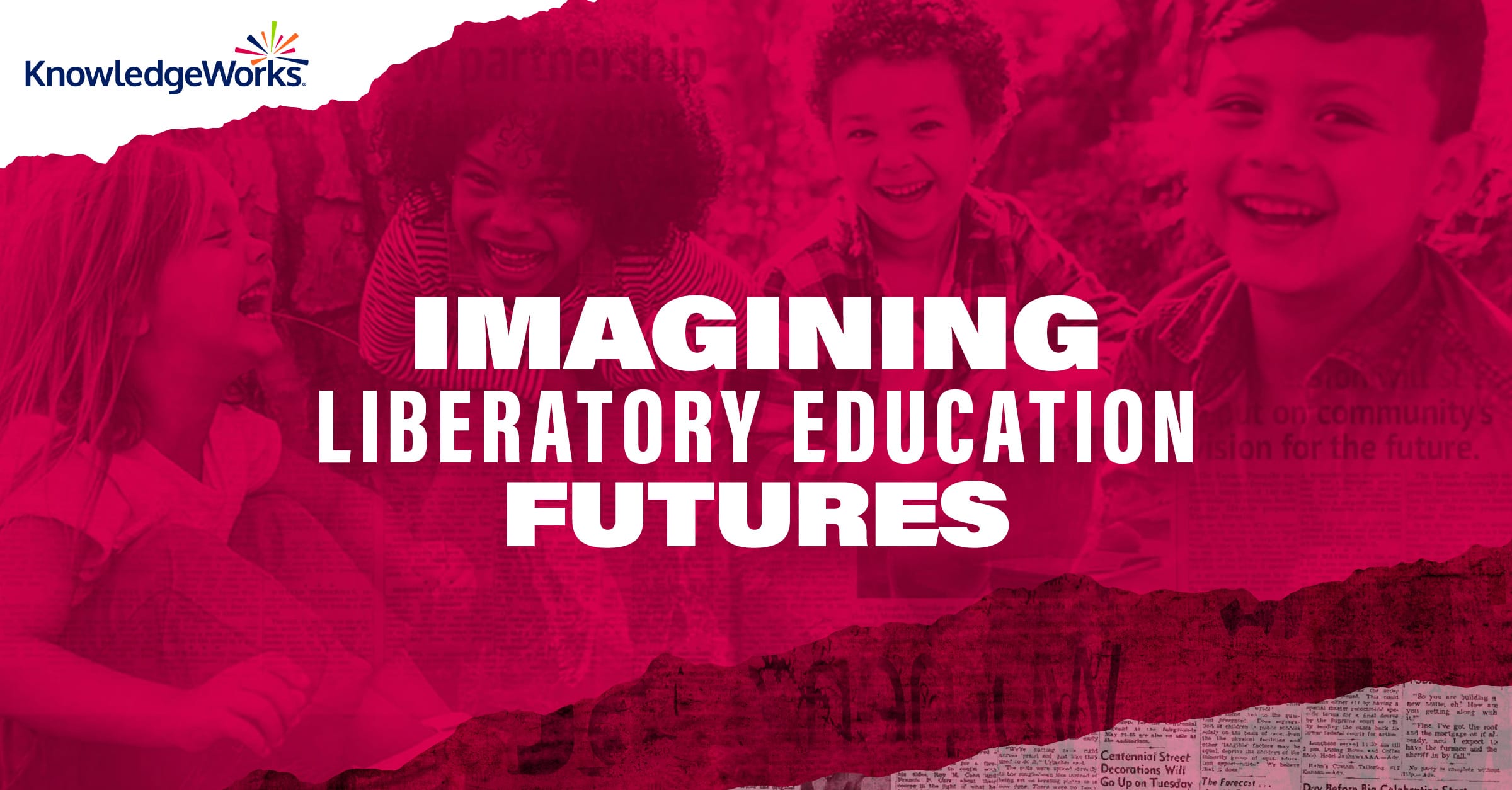The fight for just societies around the world is one of three major disruptions that are setting the context for the future of learning and creating shared, existential challenges that people will need to address together. Globally, democracy has been faltering: just 45.7% of people now live in some kind of democracy. Russia’s invasion of Ukraine represents a direct assault on democracy that could have widespread implications. In the United States, which the Economist Intelligence Unit classifies as a flawed democracy, ongoing political polarization threatens democracy.
To shed more light on this troubling disruption, I spoke with Matt Williams, KnowledgeWorks’ chief strategy officer. He worked extensively in policy and advocacy, taught in the Civic Education Department at Baylor University and studied history at the University of Texas San Antonio. We talked about issues that we’re facing, historical patterns, how we might look to the future together and how democracy and education are linked.
Societal splintering
Prince: What comes to mind as you consider this disruption?
Williams: The influence of tech companies – whether social media, algorithms or artificial intelligence – gives you the ability to craft your own world of facts. Your own echo chamber supports what you see and is essentially self-propaganda. That leads to an inability to connect with other humans and an inability to practice empathy in a real way. We’ve lost the shared spaces that enable us to grow justice and equality and maintain democracy – or we’re on the verge of losing them.
As awful as COVID has been, it presented the opportunity for us to come together. But particularly in countries that consider themselves democracies, we saw the opposite. We saw a splintering – of shared space, shared support, empathy, etc. The framing of our pandemic response should have been around what we owe one another.
Repeating cycles
Prince: It’s very hard for us to connect across worldviews right now. I’m curious whether you see any other factors at play when you think about the decline of democracy from a global perspective?
Williams: Both nationally and internationally, we’re seeing a collective disruption to democracy. It’s analogous to some of the movements in the late 1920s into the 1930s. Fascism at that time was fairly widespread in Italy, Spain, the Soviet Union and Japan, among other places. Democracy became more difficult for a host of reasons. We often focus on Germany, but it wasn’t just there. The German story was one of individual and national victimhood that led to the atrocities of the Holocaust and the launch of World War II. It was fueled by propaganda and propped up by victimhood. Victimhood leads to an us-versus- them situation and is a precursor that can enable fascism to grow.
We’ve seen some of those same characteristics come back, hitting across continents. The recent rally in Russia was reminiscent of what we saw out of Germany in the 1930s. The constitutional crisis in Pakistan when Prime Minister Khan dissolved the Parliament is another indicator. The pronounced cycles that we go through between democracy and authoritarianism are playing out again.
Forces threatening democracy
Prince: What forces do you see driving the swing back toward fascism and authoritarianism?
Williams: One factor is a disconnect between aristocracy and everyone else, the lack of a middle class that creates the foundational element of any democracy. If you think about Saddam Husain’s rise in Iraq, he eliminated the middle class to destroy democracy. When the USSR moved to the Russian Federation, they did not invest enough in the middle class. We have the same thing in the United States with the shrinking of the middle class. It’s hard to sustain a democracy without a thriving middle class.
The shift from the industrial to the information age contributed to the shrinking of the middle class. But many democracies have also passed laws that favor those who are able to keep, grow and pass on their wealth.
Another thing that strikes me about the buildup to Russia’s invasion of Ukraine and some of the reaction is that it’s reminiscent of the spring of 1914, where you had this drumbeat that war was inevitable.
We’re seeing a lot of powerful historical cycles play out. We do typically come out of these cycles.
We have asked education to be almost everything for every child without making any substantive changes to its design since the late 1890s.
What we ask education to do
Prince: The growing inequality that you cited is reflected in the divides that persist within and across our education systems. I’m curious to bring into the conversation education’s role as a potential enabler of the civic skills that can help us maintain democracy – and the impact of this increasingly divided world on education.
Williams: There’s a disconnect between what education can be and what it’s currently constructed to do. I firmly believe that, whatever the problem, education is the answer. But structural oppression is in place, and it’s not just educational. It overlays the political structure as well. We’re at a dangerous point, as evidenced by the democracy indicators and the things that normally sustain and grow democracies.
We have asked education to be almost everything for every child without making any substantive changes to its design since the late 1890s. We have added on to education because it’s the most direct way to get services to kids, but doing so has put pressure on a system that wasn’t designed to do all of that effectively. Now we have school boards that should be focused on supporting kids tied up in conversations about what should and should not be taught in a social studies or biology class.
One way to pave the way for liberatory education is to get rid of tracking, a system that was designed to establish and keep inequities. Let’s debunk myths that reinforce tracking and show how personalized, competency-based learning pathways can replace it.
Learn more >>
Controlling the message
Prince: Those debates are compounding that individualistic construction of truth that we discussed. An article in The Atlantic argues that education is supposed to expose kids to other people and help them see different ways of thinking so that we are fostering the civic space that we need to maintain democracy and open paths to opportunity for everyone.
Williams: That’s hugely productive. Digging into novels, historical documents and the like makes you a better thinker. It makes you better able to deal with your phone and social media, better able to understand bias and discern opinion versus fact.
I think that fear is driving a lot – wanting to control what your kid sees and does or doesn’t learn. It’s kind of a death grip on your child’s future. I think it goes back to the various levels of displacement that we experience in different ways as human beings, whether in the United States or elsewhere. There’s that pressure point of victimhood.
But we need to be clear that fear has always been there. Historical cycles that lean toward authoritarianism or fascism have always come with book burning because authoritarian leaders want to control the message, control what people know and remember, and shape what they do in the future.
Education as a connector
Prince: Do you see any hopeful glimmers that you might want to take out to the future?
Williams: My hope is that education could be liberatory, that we could see greater knowledge, greater empathy, greater understanding of one another’s experiences. To some degree, that represents a return to what education systems were initially created to do, which was to liberate the mind and connect people to build a society.
The world has never been more connected, yet we’re seeing narrowing everywhere. Instead of embracing interconnection, we’re retrenching. Unfortunately, we’ve seen this before. Protectionism often goes hand in hand with populism. Yet our global interconnections make it more important than ever to look beyond our shores.
A question for the future is, “How do we begin to reconnect?” Education can help us do that through shared experiences. Personalizing learning is one aspect, but you have to connect it to the community so it doesn’t become an individual experience. I see glimmers of hope in Montessori schools across the country as a way to build community in the early years and then take that community outside in the middle and high school years.
Education can be a connector because we go to school with people who are different from us and have different perspectives. Education can also help bolster and rebuild the middle class that is essential for democracy. It can help create economic competitiveness at the nation-state level. With less economic uncertainty comes less fear, less sense of victimhood. Allaying those feelings makes it less likely that people will turn to authoritarianism for answers. Bolstering the country’s economic competitiveness can in turn make sure we can pay for effective education and other social systems.
We’re not good at having honest conversations about what we want out of education and other systems. In the United States, our aspirations are pretty much only talked about in individual terms, not those of the collective. I do see some positivity in the way the world has reacted to Russia’s invasion of Ukraine. My hope is that, if we can tackle this crisis, some positive momentum could lead us to tackle other big issues, too.
In our sixth anchor forecast, we take a look at four possible futures for what liberatory education might look like twenty years from now.








